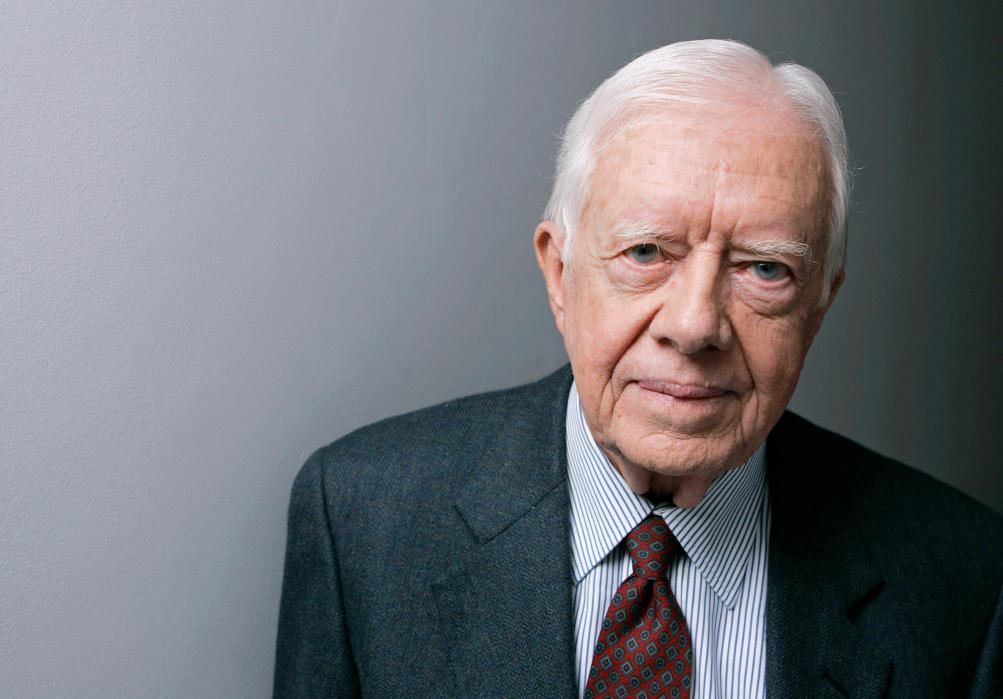FEATURED
Former U.S President Jimmy Carter Dies At 100

Former President of the United States of America, Jimmy Carter, is dead.
He died on Sunday afternoon in Plains, Ga., the Carter Center said.
Carter entered hospice care in February 2023 after several hospital stays, forgoing further medical treatments to stop the spread of melanoma, a form of skin cancer.
According to agency report, Jimmy Carter was arguably the most enigmatic president of America’s post-World War II era.
His brilliant life and troubled presidency
Carter, a Democrat, took office as the 39th U.S. president in January 1977. During his one term in the White House, he decreased the budget deficit, became a trailblazer for green energy, negotiated the Panama Canal treaties, brokered the peace treaty between Israel and Egypt, created millions of jobs and the Education Department, brought diversity to the federal bench and diverted a nuclear disaster.
Leaders who reach the pinnacle of power are usually complicated individuals. But Carter was a man whose outward image was often the opposite of what lay underneath. He strove to convey simplicity and humility, yet he was a highly sophisticated man with ego and ambition that burned hotter than most.
“Don’t pay any attention to that smile. That don’t mean a thing,” said Ben Fortson, Georgia’s secretary of state for a period of 33 years that included Carter’s tenure as governor. “That man is made of steel, determination and stubbornness.”
Carter’s own wife, Rosalynn, once said that her husband “appears kind of meek or something. People always underestimate him.”
Carter has been widely considered an unsuccessful president who was overwhelmed by events. And compared with the presidencies of, say, Johnson, Nixon or Reagan, Carter’s single term is a period that historians and the public showed very little interest in revisiting, though that began to shift in his last few years. Yet he lived a compelling, exemplary life, and he was beset by challenges in office that would have stymied most leaders.
During Carter’s term, he was unable to resolve the major problems that confronted America in the late 1970s. He could not tame inflation or unite the Democratic Party, and he couldn’t free the Americans who were held captive in Iran for more than a year. It’s not well known, however, that the agreement that led to freedom for the 52 American hostages in Tehran was negotiated by Carter and his administration during his final weeks in office. Ronald Reagan had little if anything to do with it, even though he is commonly given credit, since the Iranians released the hostages moments after he was inaugurated.
















